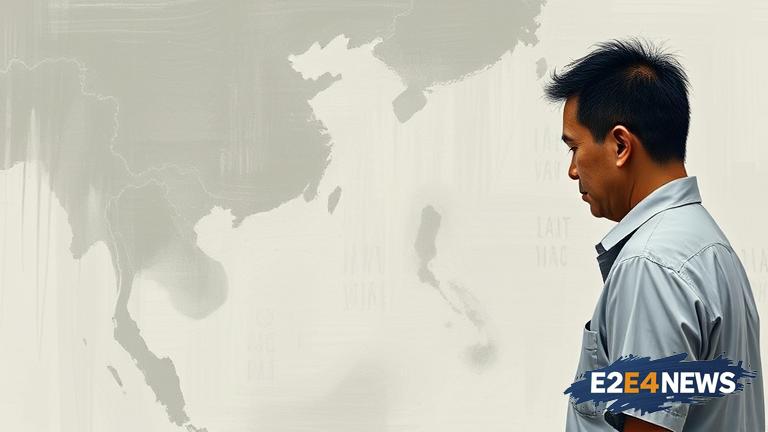The ongoing border crisis between Thailand and Cambodia has sparked concerns over the spread of fake news, with experts warning that misinformation can exacerbate tensions and hinder diplomatic efforts. In recent weeks, false reports and rumors have circulated on social media, fueling public anxiety and mistrust. To combat this, experts are calling for improved information management, emphasizing the need for accurate and reliable news sources. This includes verifying information through reputable channels and promoting media literacy among the public. The Thai and Cambodian governments have been working to resolve the border dispute, which centers on a longstanding disagreement over territory. However, the spread of fake news has complicated matters, with some reports suggesting that the crisis is more severe than it actually is. Experts warn that this can lead to a breakdown in trust between the two nations, making it more challenging to find a resolution. Furthermore, the spread of misinformation can also have serious consequences for individuals, including the spread of hate speech and the incitement of violence. To address this, experts are urging the public to be cautious when sharing information on social media and to verify sources before accepting information as true. The use of fact-checking initiatives and independent media outlets can also help to combat the spread of fake news. In addition, the Thai and Cambodian governments can work together to promote accurate information and reduce tensions. This can involve joint statements and press conferences, as well as efforts to promote people-to-people diplomacy. By working together, the two nations can help to reduce the spread of fake news and promote a more accurate understanding of the border crisis. The international community also has a role to play, with organizations such as the United Nations and the Association of Southeast Asian Nations (ASEAN) able to provide support and guidance. Ultimately, the key to resolving the border crisis and combating fake news is improved information management, which requires a concerted effort from governments, civil society, and the public. By promoting accurate and reliable information, we can help to reduce tensions and promote a more peaceful resolution to the crisis. The situation is complex and multifaceted, requiring a nuanced and informed approach. Experts are warning that the spread of fake news can have serious consequences, including the erosion of trust and the incitement of violence. It is essential that the public is aware of the risks and takes steps to verify information before accepting it as true. The Thai and Cambodian governments must also work together to promote accurate information and reduce tensions, using a range of tools and strategies to achieve this goal. This includes joint statements and press conferences, as well as efforts to promote people-to-people diplomacy. By working together, the two nations can help to reduce the spread of fake news and promote a more accurate understanding of the border crisis. The international community has a critical role to play in supporting these efforts, providing guidance and support to help resolve the crisis. The use of technology, such as social media and fact-checking initiatives, can also help to combat the spread of fake news. However, this requires a concerted effort from governments, civil society, and the public, as well as a commitment to promoting accurate and reliable information. The situation is ongoing, with the border crisis showing no signs of resolution. However, by working together and promoting accurate information, we can help to reduce tensions and promote a more peaceful resolution to the crisis. The public must be aware of the risks of fake news and take steps to verify information before accepting it as true. This includes being cautious when sharing information on social media and using reputable sources to verify information. The Thai and Cambodian governments must also work together to promote accurate information and reduce tensions, using a range of tools and strategies to achieve this goal. The international community has a critical role to play in supporting these efforts, providing guidance and support to help resolve the crisis.
